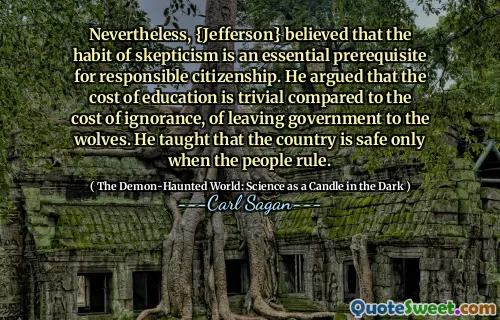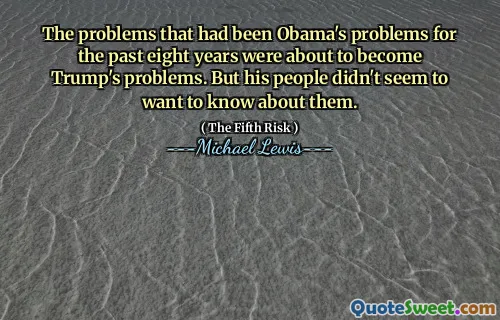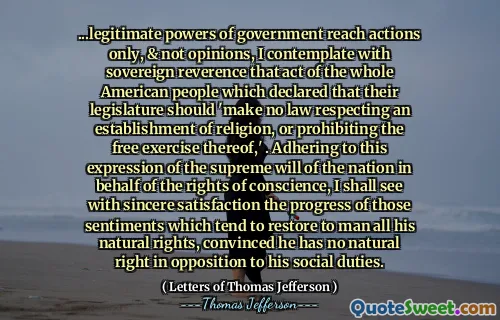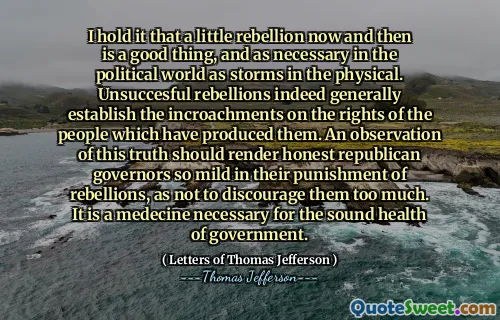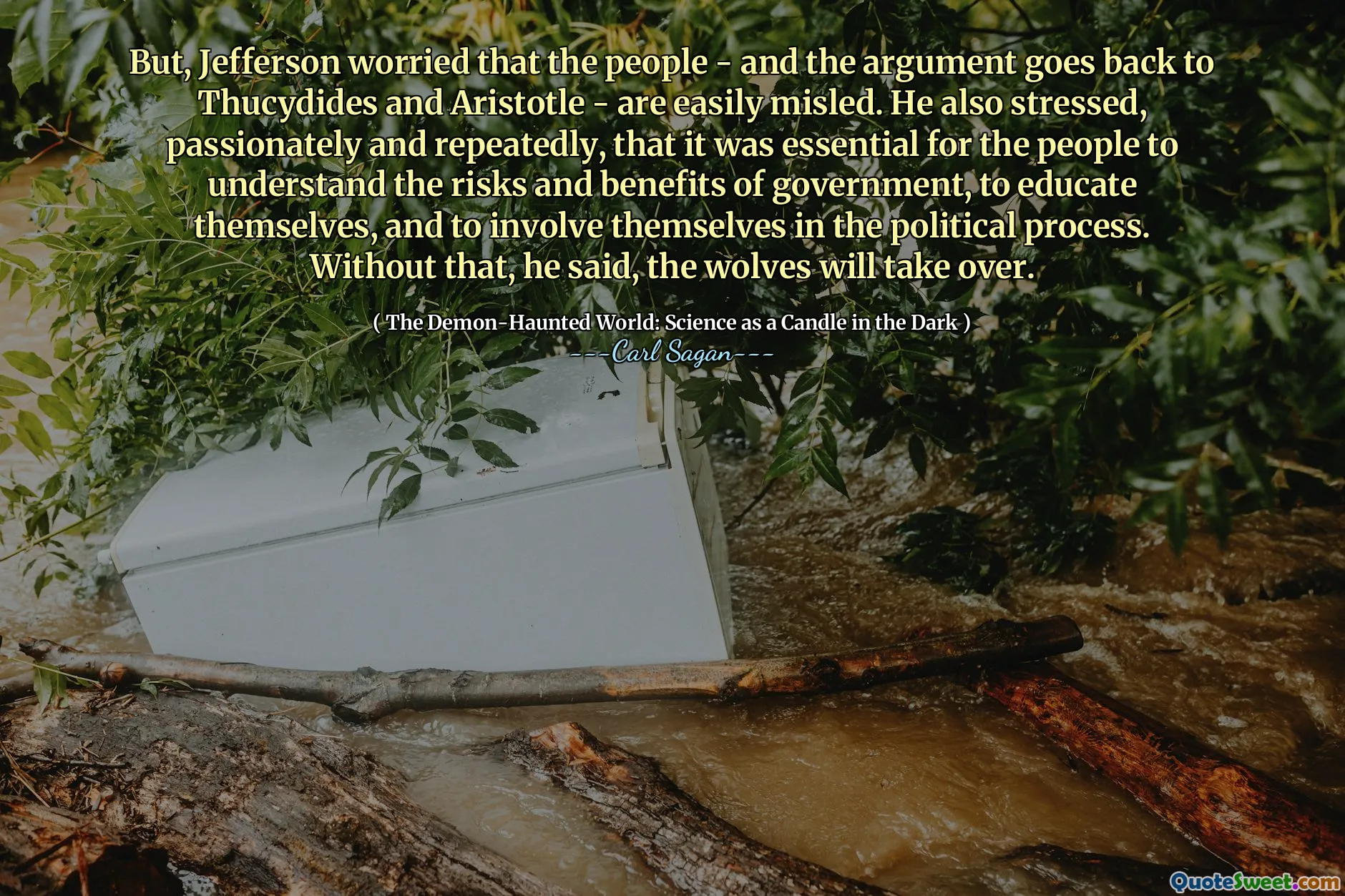
But, Jefferson worried that the people - and the argument goes back to Thucydides and Aristotle - are easily misled. He also stressed, passionately and repeatedly, that it was essential for the people to understand the risks and benefits of government, to educate themselves, and to involve themselves in the political process. Without that, he said, the wolves will take over.
Thomas Jefferson expressed a deep concern about the susceptibility of the populace to manipulation, a sentiment echoed by classical thinkers like Thucydides and Aristotle. He firmly believed that for a democracy to thrive, it was crucial for citizens to be well-informed about the government's advantages and drawbacks. Jefferson advocated for an educated electorate that actively participates in political matters to safeguard democracy.
He warned that without this engagement and awareness, society risks being overtaken by those with ulterior motives. Jefferson's views align with Carl Sagan's insights in "The Demon-Haunted World," where he underscores the significance of critical thinking and scientific literacy in maintaining a functional democracy. The metaphor of "wolves" represents those who would exploit ignorance for their gain, emphasizing the need for vigilance and participation.
